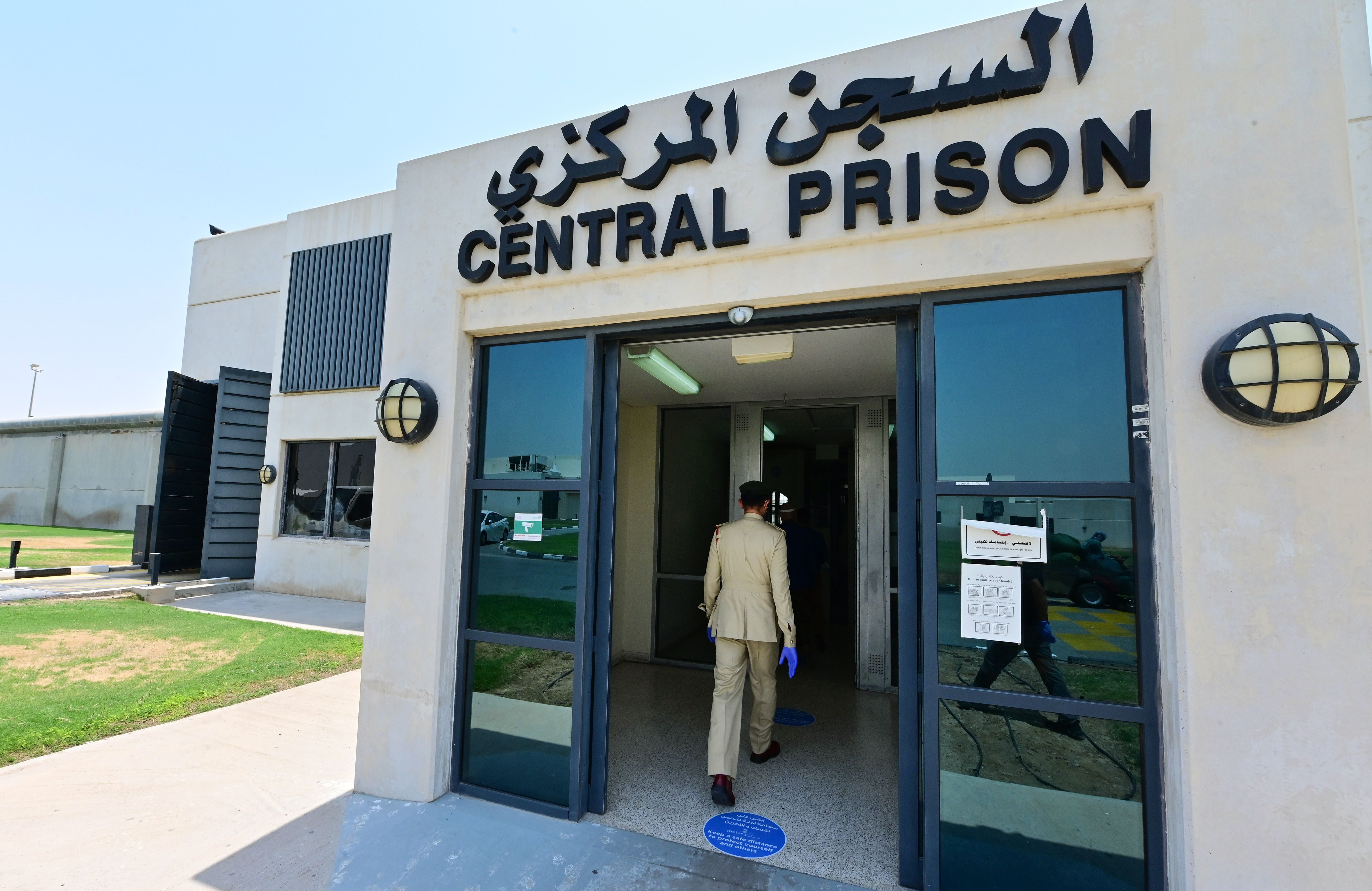A British businessman unjustly imprisoned in Dubai has urged the Foreign Office to protect him against “aggressive” prison officials after they tried to force him to sign a document claiming his human rights were being upheld.
Father-of-three Ryan Cornelius, 70, has spent more than 16 years languishing in prison in the United Arab Emirates over an alleged £370 million fraud. His original sentence of 10 years has been extended until 2038.
The UAE says he illegally obtained a loan from the government-affiliated Dubai Islamic Bank (DIB) by bribing staff members, but the United Nations says the charges of fraud are false.
Mr Cornelius and his supporters accuse the DIB of being his “effective jailers”, ensuring he remains in prison to retain property they allege was stolen from him by way of ‘compensation’. Despite the UAE constitution stating that all inmates should be freed when they turn 70, Mr Cornelius’ clemency appeal, endorsed by the Foreign Office, was also rejected last year.
In a plea for help to the Foreign Office, seen by The Independent, Mr Cornelius says he now fears for his safety after he refused to sign a document produced this month by prison officials that states his human rights are not being violated.
Mr Cornelius is currently being held in the Al Awir Central Prison just outside of Dubai, the same complex where 18-year-old Briton Marcus Fakana is serving a one-year-sentence for having sex with a then-17-year-old girl last year.

Over Christmas, Mr Cornelius says the prison became “intolerably overcrowded”. In his letter to the Foreign Office, he added that he has been denied access to fresh air and basic facilities. He is already suffering from the cumulative health effects of tuberculosis, Covid and high blood pressure, which have been partially brought on by the poor prison conditions.
Mr Cornelius’ brother-in-law, Chris Pagett, says that the businessman is being forced to go “days on end” without access to fresh air. One of the prison guards in particular has been “throwing his weight around” recently, Mr Pagett says, conducting aggressive cell searches and closing down the food shop in the complex.
The document suggesting the prisoners’ human rights are not being violated was written in Arabic, a language Mr Cornelius does not fully understand. He described being “coerced” to sign the letter and says that when he refused, unlike his fellow cell mates, the guard became angry.
It is the first time in nearly 17 years of imprisonment Mr Cornelius has been instructed to sign a document regarding his human rights. Immediately after his arrest, in 2008, he was presented with a document in Arabic and told that if he signed it, he would be released from detention. After obeying those instructions, however, he was put in solitary confinement.
“The relationship between jailers and prisoners is inherently coercive,” reads the letter sent by Mr Cornelius to the Foreign Office. “The former’s power to make life deeply unpleasant for anyone they choose to pick on is fundamental to their enforcement of prison rules. When someone with this kind of power over you tells you to sign a statement to the effect that you are being well treated, you have a healthy incentive to comply in order to avoid being treated even worse.”
He describes the attempts to make him sign the document as showing a “complete contempt for international norms”.
The letter continues: “And so I am writing to ask, on behalf of all the British prisoners in Dubai Central Jail, that the British government lodge a formal protest to the Dubai authorities, making it clear at the highest level that the behaviour of their prison administration constitutes a gross abuse of power.”
Mr Cornelius and his family have not received a response to that letter, sent via email by the British businessman’s wife, Heather, on 9 January.
When The Independent asked the Foreign Office if they planned to respond to the family, and if they would condemn the act of the prison officials, the ministry declined to answer.
Labour MP Tim Roca, who is vice chair of a recently-convened parliamentary pressure group focused on Britons arbitrarily detained abroad, says the Foreign Office has consistently “failed to bring about meaningful change” for Mr Cornelius.
In a letter to the foreign secretary David Lammy, Mr Roca urged his fellow Labour MP to “put pressure on the Dubai authorities, making it clear that this behaviour is unacceptable and represents a gross abuse of power”.
He also called for Mr Lammy to consider sanctioning officials at the DIB and the Al Awir prison. A document has been submitted by Mr Cornelius’ lawyers to the Foreign Office detailing a possible sanctions action.
Mr Cornelius’s family and supporters have urged Sir Keir Starmer and Mr Lammy to do more to secure the British businessman’s release. The prime minister and former human rights lawyer, however, did not mention Mr Cornelius during a trip to Dubai in December to discuss trade with the president, Mohammed bin Zayed.
Mr Lammy did raise Mr Cornelius’ case on 7 December during a meeting with his UAE counterpart, but the family say he has not done enough.

